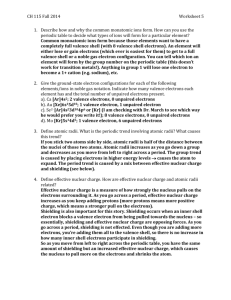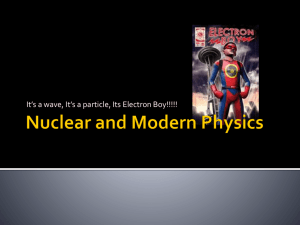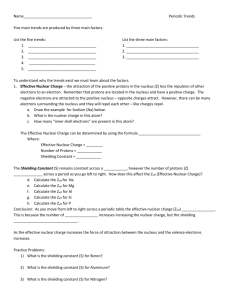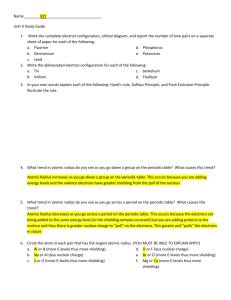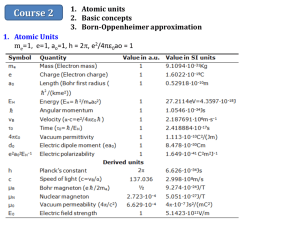Test Review "Periodicity" 9899
advertisement
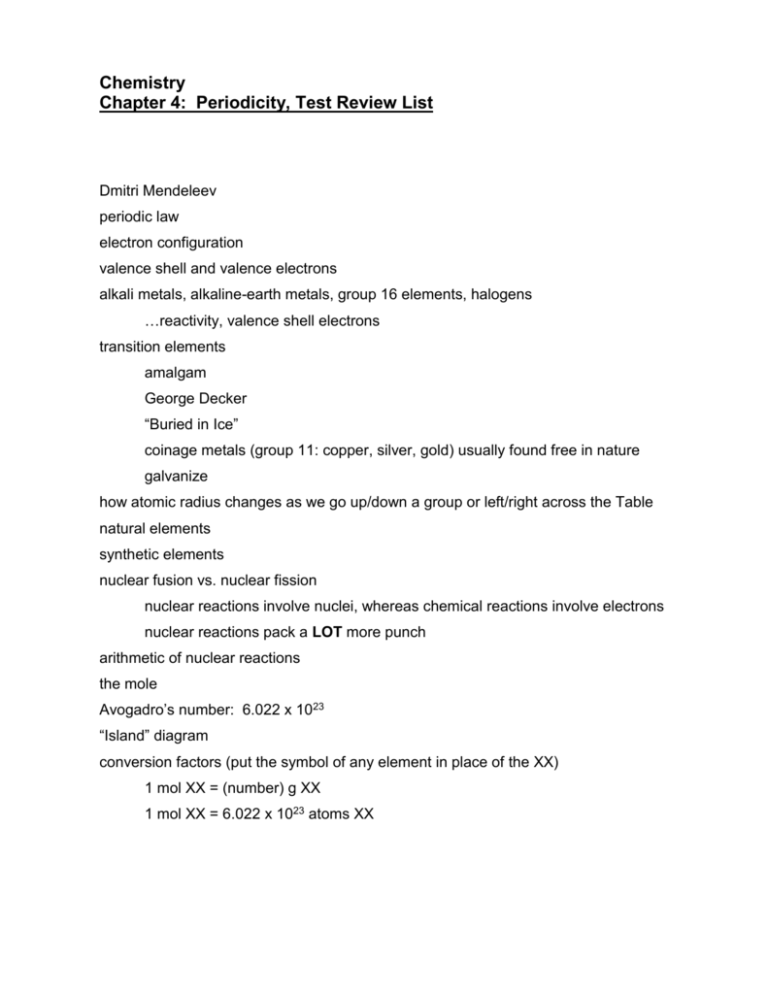
Chemistry Chapter 4: Periodicity, Test Review List Dmitri Mendeleev periodic law electron configuration valence shell and valence electrons alkali metals, alkaline-earth metals, group 16 elements, halogens …reactivity, valence shell electrons transition elements amalgam George Decker “Buried in Ice” coinage metals (group 11: copper, silver, gold) usually found free in nature galvanize how atomic radius changes as we go up/down a group or left/right across the Table natural elements synthetic elements nuclear fusion vs. nuclear fission nuclear reactions involve nuclei, whereas chemical reactions involve electrons nuclear reactions pack a LOT more punch arithmetic of nuclear reactions the mole Avogadro’s number: 6.022 x 1023 “Island” diagram conversion factors (put the symbol of any element in place of the XX) 1 mol XX = (number) g XX 1 mol XX = 6.022 x 1023 atoms XX 1. According to what property did Mendeleev arrange the first periodic table? Who arranged the table as it now exists? 2. What is the similarity between the electron configurations of H, Li, and Na? What property of these elements can we explain because of this similarity? 3. What is the term for the outermost shell of electrons? 4. Which are more reactive, group 16 elements or the halogens? Explain your answer. 5. What term do we use to describe an alloy that contains mercury? 6. What illness did George Decker get because he inhaled mercury vapors? 7. What was the first clue that search team had that the individuals who were “Buried in Ice” were not playing with full decks? 8. What does the term “galvanize” mean? 9. Which has a bigger radius: A) O or S B) O or F 10. What is the natural element with the largest atomic number? 11. What is another term for “synthetic” elements? 12. Give one example of each: nuclear fission, nuclear fusion 13. Solve the following nuclear equation. 12 231 C 6 + Pa 91 1 ------------------- 2 n + 0 14. Convert 34 g of carbon into number of atoms of carbon. a) Convert 4.44 x 1018 atoms of neon into grams of neon.

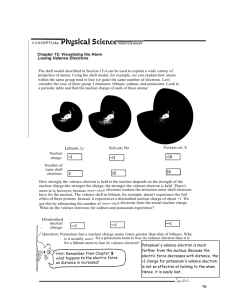


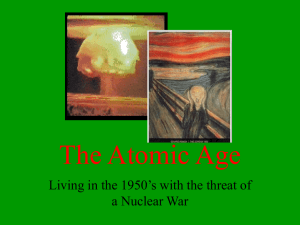

![The Politics of Protest [week 3]](http://s2.studylib.net/store/data/005229111_1-9491ac8e8d24cc184a2c9020ba192c97-300x300.png)
